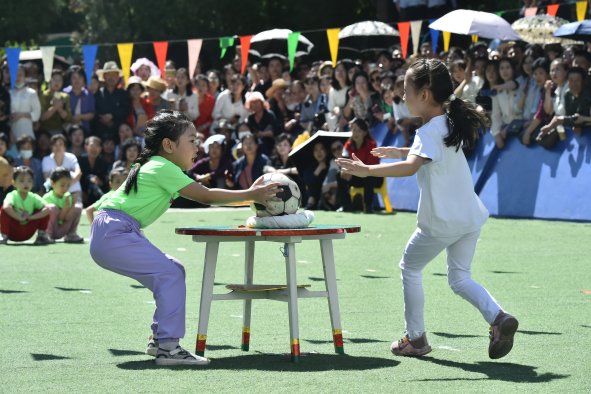China has officially banned foreign adoptions of its children, ending a practice that has been in place for more than three decades.
This decision comes at a time of shifting demographics and evolving family policies in China, leaving hundreds of prospective adoptive parents across the world in limbo. The announcement has raised concerns not only among the families affected but also about the broader implications for China's child welfare system and its approach to managing its population crisis.
The new policy, announced on September 5 by the Chinese Foreign Ministry, halts all foreign adoptions, with exceptions only for stepchildren or children from the same family. China's government described the ban as being in line with "international trends" aimed at focusing on domestic solutions for child welfare.
"We express our appreciation to those foreign governments and families, who wish to adopt Chinese children," said Foreign Ministry spokesperson Mao Ning, adding that the change was part of a broader alignment with global practices in adoption.
"Under the guidance of the spirit of relevant international covenants, this is the latest policy adjustment made to best suit the current situation," Chinese Embassy in the U.S. spokesperson Liu Pengyu added when reached for comment.
"Beijing no doubt considered all the social, demographic and diplomatic angles when it decided to end the overseas adoption process, which had ground to a halt in the early days of the COVID outbreak," G.A. Donovan, a former consulate officer at the U.S. Embassy in Beijing and fellow at the Asia Society Policy Institute Center, told Newsweek.
"But the simplest explanation is that after a four-year hiatus, now was an opportune time to call an end to it. It's very sad for those families who were left in the lurch, but leaving things ambiguous might have led to even more heartbreak."
Yaqiu Wang, the China research director at Freedom House, cautioned that while the policy shift may help China manage its internal demographic challenges, it could have a troubling impact on vulnerable children.
"Ending the international adoption program means that some children—especially those with special needs—might have to spend their entire childhood in state orphanages," Wang said.
She expressed concern about the lack of public oversight, noting that reports of abuses within orphanages and the adoption system have sharply decreased because of government censorship.
"I doubt the situation has improved," she added. "Media and public oversight are critical for holding the government accountable."
A U.S. State Department spokesperson acknowledged the frustration and uncertainty families are experiencing.
"We sympathize with their situation," the spokesperson told Newsweek, noting that the department is seeking written clarification from Chinese authorities on the status of pending adoptions. "We understand there are hundreds of families still awaiting completion of their adoptions, and we are working to provide prospective adoptive parents with accurate information."
Disclaimer: The copyright of this article belongs to the original author. Reposting this article is solely for the purpose of information dissemination and does not constitute any investment advice. If there is any infringement, please contact us immediately. We will make corrections or deletions as necessary. Thank you.



